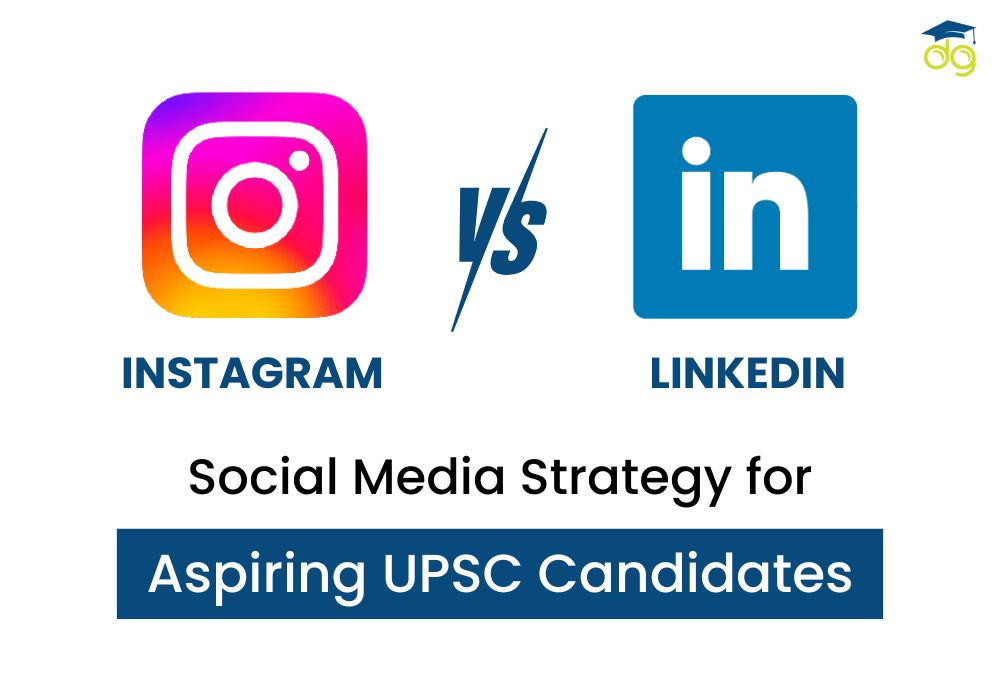Language Certifications: A Must-Have for Studying Abroad in 2025
Learn why language tests matter and how to prepare without overthinking.
If you’re thinking about studying abroad, chances are you’re already dealing with a long checklist. Applications, deadlines, documents, transcripts, letters of recommendation… it adds up fast. Somewhere in the middle of all that, someone may have told you that you’ll need a language certificate too.
If the country you’re heading to doesn’t speak your language, then yes — it matters. In others, it's actually mandatory. And even if it's not, becoming certified in the home language is one of the best things you can do to make your life simpler, in the classroom and beyond.
So if you've ever asked yourself what a language certification is, why I need it, and how I even pass it, read on. It's all here, spelt out simply.
What is a Language Certificate?
It's an exam. That's the most basic way to describe it.
You take an exam that tests your ability to read, write, listen, and speak a second language. If you pass, you receive a certificate attesting that you know the language to some degree. That certificate is acceptable to schools, governments, and even employers.
There are different tests for different languages. Each one is run by an official organisation, usually from the country where the language is spoken. Some tests are easier than others. Some are done on paper. Some are taken on a computer. Some include a speaking test with a real person. Others use a recording.
Why It Matters
1. University Applications
All schools in non-English-speaking countries require evidence that you are competent in the home language. In case you are studying French, German, Spanish, or any other language except your mother language, then the school will have to see that you are capable of handling it.
Even if the program is English, there may still be an expectation to know the fundamentals of the local language. Why? Because you'll be a resident. You'll have to learn to read signs, fill out forms, and communicate. They don't want to lose students in the daily routine.
2. Student Visas
Some countries won’t give you a student visa unless you show proof of language ability. It varies by country and by level of study, but in a lot of countries, this is a requirement, not an option.
Even if it's not an absolute necessity, it's worth adding a certificate to your visa application. It demonstrates seriousness, and in some cases, it can serve as the deciding factor.
3. Scholarships
Lots of scholarship programs prefer students who speak the language of the country they’re going to. In some cases, it’s a requirement. In others, it just gives you a better shot at getting picked.
A language certificate tells them you’re not just going there for the degree — you want to understand the country and its people.
4. Everyday Life
You will not be in a classroom 24/7. You’ll go to the store. You’ll open a bank account. You’ll use public transport. You’ll meet people. You’ll need help at some point.
And when those moments come, speaking the language — even just a little — makes everything smoother. You’ll feel less frustrated, less isolated, and more confident.
A certificate means you’ve already done the work. You won’t land in a completely unfamiliar world. You’ll be able to manage.
5. Jobs and Internships
Many international students take part-time jobs. Some stay in the country after graduation. In both cases, the local language matters.
Even if you’re not fluent, being able to speak and understand the basics will open doors. Some jobs require proof of language ability. Even when they don’t, it helps during interviews and work.
Popular Language Certifications by Language
Language | Test Names | Levels |
| English | IELTS, TOEFL, Duolingo English Test | Beginner to Advanced |
| French | DELF, DALF, TCF | A1 to C2 |
| German | Goethe-Zertifikat, TestDaF, DSH | A1 to C2 |
| Spanish | DELE, SIELE | A1 to C2 |
| Italian | CELI, CILS | A1 to C2 |
| Japanese | JLPT (N5 to N1) | N5 (beginner) to N1 (advanced) |
| Chinese | HSK (1 to 6) | Beginner to Advanced |
| Korean | TOPIK I and II | Beginner to Advanced |
Each test checks four things: reading, writing, listening, and speaking. Some are harder than others. Some are split into levels. Others use one test to measure your score.
How to Pick the Right Test
Ask yourself:
- Which nation am I travelling to?
- Which language do they speak there?
- What does the visa office or university require?
- How long do I need to study?
- Did I study this language already?
If you are not certain, email the admissions office of your destination university. They will inform you which test they accept and at what level you should arrive.
How to Prepare (Even If You’re Starting From Zero)
1. Take a Practice Test
Start by figuring out your current level. Many websites offer free tests. They’re not perfect, but they give you a rough idea.
2. Find Out What Level You Need
B1 or B2 is common for student life. C1 might be needed for certain academic programs or scholarships.
3. Make a Study Plan
Look at your calendar. Count how many weeks you have. Break it down.
If you have 4 months:
- Month 1: Vocabulary, grammar, simple sentences
- Month 2: Reading articles, podcasts, and simple writing
- Month 3: Speaking practice, timed writing, test strategies
- Month 4: Practice tests, review, strengthen weak areas
30–45 minutes a day is good too if you stick to it.
4. Use the Right Tools
Here are some that work:
- Apps: Duolingo, Babbel, Memrise
- Books: Official test guides, grammar books, workbooks
- Videos: YouTube channels with test tips or native speakers
- Audio: Target language music, podcasts, target language news
- Writing: Keep a journal. Start small. Just a few lines daily.
5. Practice Speaking (Don’t Skip This)
This is the hardest part to do alone. You can:
- Talk to yourself
- Record yourself reading aloud.
- Find language partners online (iTalki, HelloTalk, Tandem)
- Practice shadowing (repeat after a native speaker)
6. Take Mock Tests
You can find sample exams online. Do them under real conditions. Time yourself. Don’t use a dictionary.
This helps with time management and shows you what to expect on test day.
7. Review and Repeat
Every week, look at what’s working and what’s not. If you're struggling with listening, focus more on that. If speaking is hard, practice it more.
Keep going. Small progress every day is better than cramming once a week.
What Test Day Looks Like
- Bring your ID or passport
- Arrive early
- The test may take 2 to 4 hours.
- You’ll probably do reading, writing, and listening on a computer or paper.
- Speaking may be done with a person or recorded on a computer.
- Follow the instructions. Stay calm. Don’t panic if you don’t know something.
Real People, Real Stories
Nikhil, India (German B2)
Studied for 8 months using books and online videos. Now studying engineering in Germany. Says speaking German helped him make friends faster and handle paperwork easily.
Laura, Colombia (Spanish DELE B1)
Used YouTube and free podcasts. Practised writing and speaking daily. Passed in 6 months. She says it gave her the confidence to ask for help and talk to locals.
Meera, Nepal (French TCF for Canada)
Hired a tutor. Focused on speaking and listening. Passed after 4 months. Says French was tough at first, but she’s now enjoying it.
FAQs
Q1: How much time does it take to prepare?
If you start from scratch, it takes 6 to 12 months to get to B1 or B2. If you already know the language, it could be shorter.
Q2: Do I need to study with a teacher?
Yes. Many test-takers study on their own. But speaking and writing are more difficult to practice without corrective feedback.
Q3: How much do these tests cost?
They vary by test and nation. They cost mostly between $100 and $250.
Q4: What if I fail?
You may retake. Most will allow you to retake after a few weeks or months.
Q5: Do the certificates expire?
Some don't. Others, such as IELTS or TOEFL, do, after 2 years. Check the regulations for the test you sit.
Final Thoughts
Language certification is not merely passing an exam. It's preparation. It enables you to live more comfortably, study more comfortably, and be more comfortable in a foreign country.
It's not perfection. It's preparation.
So if you've been procrastinating, begin now. Choose a language. Learn what you'll need. Study a little each day. You'll be amazed at how far you can get. Visit Skoodos Bridge to learn more about international university admissions.
Categories
Archives
- October 202521
- September 202520
- August 202522
- July 202524
- June 202524
- May 202526
- April 202530
- March 202523
- February 202513
- January 202523
- December 202429
- November 20246
- September 20245
- August 202422
- July 202415
- May 20249
- June 202424
Similar Posts

Electric Vehicle Jobs: Top Mechanical Engineering Careers in EV Sector
by Skoodos Bridge

EdTech Careers After Engineering: Build Learning Apps & Startups
by Skoodos Bridge

Gaming Meets Medicine: VR Therapy Careers for NEET Aspirants
by Skoodos Bridge

WhatsApp Group Study: Boost Your Competitive Exam Preparation
by Skoodos Bridge

Drone Engineering Careers: Aerospace Pathways, Exams & Job Opportunities
by Skoodos Bridge

Instagram vs LinkedIn: Smart Social Media Strategy for UPSC Aspirants
by Skoodos Bridge

YouTube Shorts for Revision: Micro-Learning to Memorize Formulas Quickly
by Skoodos Bridge

ChatGPT for JEE Physics: Smart Prompts to Master Problem Solving
by Skoodos Bridge

Space Technology Careers: ISRO Opportunities Beyond Aerospace Engineering
by Skoodos Bridge


Leave a Comment